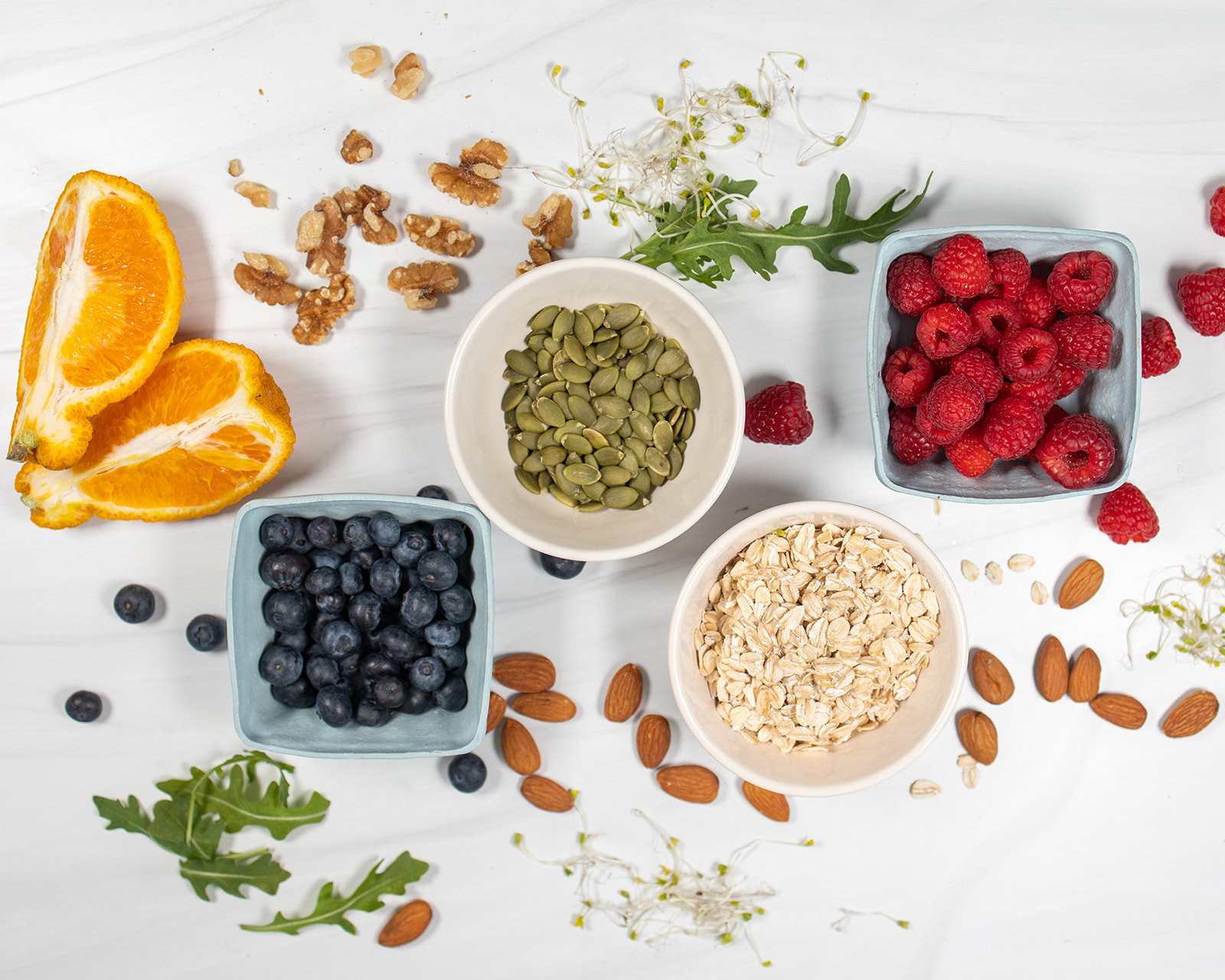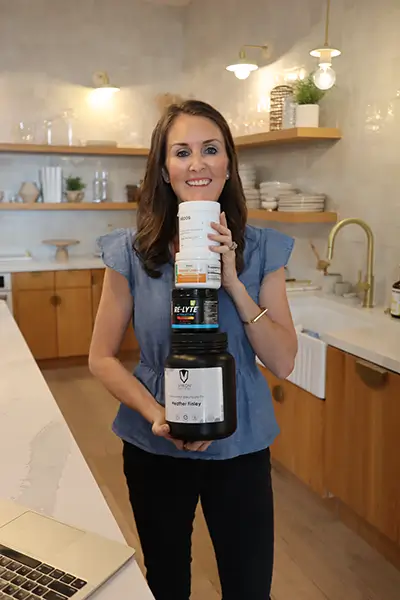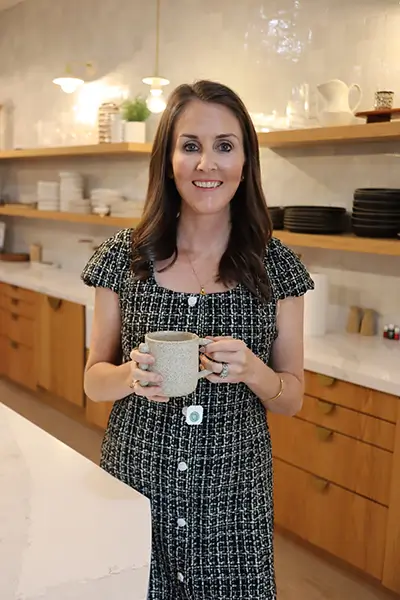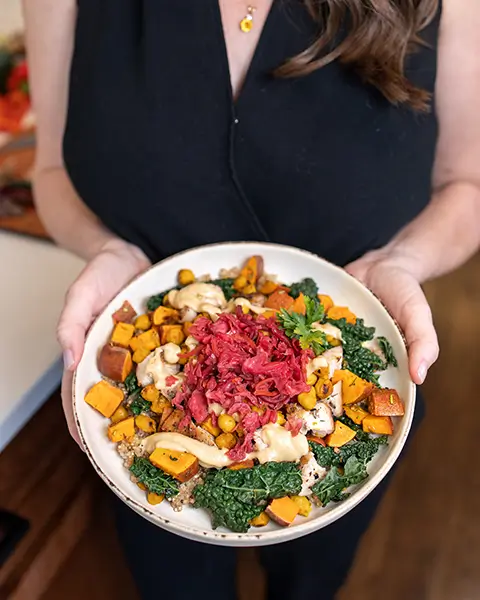If you’re dealing with IBS, you’ve probably been told (maybe more than once) that the answer lies in cutting out foods. First it was dairy. Then gluten. Then FODMAPs. Before long, your “safe list” was shorter than your supplement stack—and your symptoms? Still here. Are elimination diets for IBS helpful? Or are they actually harming your microbiome?
One client came to us eating fewer than 10 foods. She had been on the low FODMAP diet for nearly a year. Her bloating and constipation hadn’t improved, and now she was afraid to eat. Unfortunately, her story is far from unique.
Elimination diets are marketed as a first-line solution for IBS, but they often create more problems than they solve. Here’s why.
Why elimination diets aren’t solving your IBS (and may be making things worse)
Elimination diets for IBS don’t address the root cause
Elimination diets can absolutely bring short-term relief by removing trigger foods and they can reduce the immediate inflammation, bloating, or discomfort you might feel after eating. For many with IBS, this can feel like a breakthrough. But symptom relief isn’t the same as root cause resolution. Eliminating foods doesn’t answer why your gut is reacting in the first place. Whether it’s low stomach acid, sluggish motility, imbalanced gut bacteria, or chronic stress. Without identifying and addressing these deeper issues, the relief is often temporary, and reintroducing foods becomes a frustrating, endless cycle. Cutting out food can bring temporary relief, but it doesn’t fix what’s causing your symptoms in the first place. Most people with IBS have underlying imbalances that aren’t solved by a restrictive meal plan.
These might include:
- Low stomach acid
- Imbalanced gut bacteria (dysbiosis)
- Sluggish motility
- Bile flow issues
- Mineral imbalances
Without assessing digestion, detox, and microbial diversity, you’re essentially managing symptoms with a blindfold on.
They reduce gut resilience
A healthy gut isn’t built through restriction—it’s built through variety. The American Gut Project found that people who eat 30 or more different plant foods per week have significantly greater microbial diversity than those who eat fewer than 10.
Gut bacteria thrive on a wide range of fibers and polyphenols. When you remove too many foods, especially long-term, your beneficial microbes shrink, and your gut becomes less adaptable, not more.
You weren’t meant to eat a boring, beige diet forever. Food is nourishment and information for your microbiome.
They increase stress and food fear
We see this all the time: clients terrified to eat because they’ve been trained to see food as the enemy. But the more stressed you are around food, the harder it is to digest it. Additionally, if you often think, “the healthier I eat, the worse I feel”, its often less about the food and more about stress and your gut
Digestion is a parasympathetic process—also known as “rest and digest.” If you’re eating while anxious, multitasking, or hyper-vigilant about every bite, your nervous system isn’t in the right state to break food down and absorb nutrients.
One of the reminders we share often: “The stress about the food is often worse than the food itself.”
That’s why we start with meal hygiene—simple shifts like deep breathing before meals, chewing thoroughly, and stepping away from screens. These small changes tell your body it’s safe to digest.
What to focus on instead of endless elimination
Test, don’t guess
There’s a better way than trial and error. Using functional testing like the GI Map and HTMA (hair tissue mineral analysis), we help clients identify exactly what’s going on: Is there inflammation? A parasite? Low secretory IgA? Are mineral imbalances affecting motility or stress resilience?
This data gives us a roadmap—so we know what needs support and where to start.
Support digestion, not just restriction
In the gutTogether® program, symptom relief often begins not with eliminating more food—but with supporting your digestive system so your body can actually handle food better. This includes:
- Digestive enzymes to break down protein, carbs, and fat
- Stomach acid support (like digestive bitters or HCl)
- Minerals like magnesium, sodium and potassium to keep motility moving
- Liver + bile support, especially post-gallbladder removal
When these systems work properly, food becomes easier to tolerate—and less scary.
Rebuild the microbiome and restore food tolerance
Your gut should be able to tolerate a wide variety of foods. Why? Because your microbes are supposed to digest fiber for you—especially fermentable fibers like inulin, legumes, onions, and garlic.
We help clients rebuild their microbiome using a step-by-step approach:
- Start with resistant starches (like green banana flour or cooked/cooled potatoes)
- Layer in polyphenols (like berries, green tea, and herbs) to feed key strains
- Slowly reintroduce fermentable fibers once symptoms calm down
This isn’t about going back to a “normal” diet overnight. It’s about creating tolerance and flexibility again—so food becomes nourishment, not a threat.
The Next Step Toward a Healthier Gut
If you’ve tried every elimination diet for IBS and still feel bloated, constipated, or afraid to eat, it’s not because you haven’t restricted enough. It’s because restriction was never the real solution.
You don’t need more rules. You need restoration—of digestion, microbial diversity, mineral balance, and nervous system calm.
Ready to figure out what’s really causing your symptoms?
Take the Why Am I Bloated? free Quiz or apply for the gutTogether® Program to get personalized testing and support.








